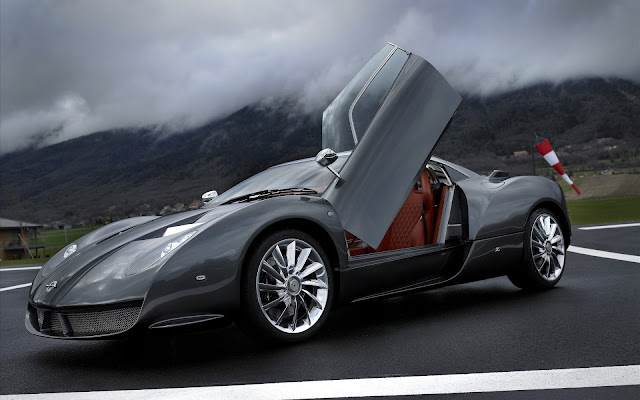We decided to use this room, on the second floor and overlooking the plaza, for Dejah Thoris and Sola, and another room adjoining and in the rear for the cooking and supplies. I then dispatched Sola to bring the bedding and such food and utensils as she might need, telling her that I would guard Dejah Thoris until her return.
As Sola departed Dejah Thoris turned to me with a faint smile.
"And whereto, then, would your prisoner escape should you leave her, unless it was to follow you and crave your protection, and ask your pardon for the cruel thoughts she has harbored against you these past few days?"
"You are right," I answered, "there is no escape for either of us unless we go together."
"I heard your challenge to the creature you call Tars Tarkas, and I think I understand your position among these people, but what I cannot fathom is your statement that you are not of Barsoom."
"In the name of my first ancestor, then," she continued, "where may you be from? You are like unto my people, and yet so unlike. You speak my language, and yet I heard you tell Tars Tarkas that you had but learned it recently. All Barsoomians speak the same tongue from the ice-clad south to the ice-clad north, though their written languages differ. Only in the valley Dor, where the river Iss empties into the lost sea of Korus, is there supposed to be a different language spoken, and, except in the legends of our ancestors, there is no record of a Barsoomian returning up the river Iss, from the shores of Korus in the valley of Dor. Do not tell me that you have thus returned! They would kill you horribly anywhere upon the surface of Barsoom if that were true; tell me it is not!"
Her eyes were filled with a strange, weird light; her voice was pleading, and her little hands, reached up upon my breast, were pressed against me as though to wring a denial from my very heart.
"I do not know your customs, Dejah Thoris, but in my own Virginia a gentleman does not lie to save himself; I am not of Dor; I have never seen the mysterious Iss; the lost sea of Korus is still lost, so far as I am concerned. Do you believe me?"
And then it struck me suddenly that I was very anxious that she should believe me. It was not that I feared the results which would follow a general belief that I had returned from the Barsoomian heaven or hell, or whatever it was. Why was it, then! Why should I care what she thought? I looked down at her; her beautiful face upturned, and her wonderful eyes opening up the very depth of her soul; and as my eyes met hers I knew why, and—I shuddered.
 |
| Great Headseat |
A similar wave of feeling seemed to stir her; she drew away from me with a sigh, and with her earnest, beautiful face turned up to mine, she whispered: "I believe you, John Carter; I do not know what a 'gentleman' is, nor have I ever heard before of Virginia; but on Barsoom no man lies; if he does not wish to speak the truth he is silent. Where is this Virginia, your country, John Carter?" she asked, and it seemed that this fair name of my fair land had never sounded more beautiful than as it fell from those perfect lips on that far-gone day.
"'Tis my Mary, my Mary herself! She promised that my boy, every morning, should be carried to the hill to catch the first glimpse of his father's sail! Yes, yes! no more! it is done! we head for Nantucket! Come, my Captain, study out the course, and let us away! See, see! the boy's face from the window! the boy's hand on the hill!"
But Ahab's glance was averted; like a blighted fruit tree he shook, and cast his last, cindered apple to the soil.

"What is it, what nameless, inscrutable, unearthly thing is it; what cozening, hidden lord and master, and cruel, remorseless emperor commands me; that against all natural lovings and longings, I so keep pushing, and crowding, and jamming myself on all the time; recklessly making me ready to do what in my own proper, natural heart, I durst not so much as dare? Is Ahab, Ahab? Is it I, God, or who, that lifts this arm? But if the great sun move not of himself; but is as an errand-boy in heaven; nor one single star can revolve, but by some invisible power; how then can this one small heart beat; this one small brain think thoughts; unless God does that beating, does that thinking, does that living, and not I. By heaven, man, we are turned round and round in this world, like yonder windlass, and Fate is the handspike. And all the time, lo! that smiling sky, and this unsounded sea! Look! see yon Albicore! who put it into him to chase and fang that flying-fish? Where do murderers go, man! Who's to doom, when the judge himself is dragged to the bar? But it is a mild, mild wind, and a mild looking sky; and the air smells now, as if it blew from a far-away meadow; they have been making hay somewhere under the slopes of the Andes, Starbuck, and the mowers are sleeping among the new-mown hay. Sleeping? Aye, toil we how we may, we all sleep at last on the field. Sleep? Aye, and rust amid greenness; as last year's scythes flung down, and left in the half-cut swaths—Starbuck!"
But blanched to a corpse's hue with despair, the Mate had stolen away.
Ahab crossed the deck to gaze over on the other side; but started at two reflected, fixed eyes in the water there. Fedallah was motionlessly leaning over the same rail.That night, in the mid-watch, when the old man—as his wont at intervals—stepped forth from the scuttle in which he leaned, and went to his pivot-hole, he suddenly thrust out his face fiercely, snuffing up the sea air as a sagacious ship's dog will, in drawing nigh to some barbarous isle. He declared that a whale must be near. Soon that peculiar odor, sometimes to a great distance given forth by the living sperm whale, was palpable to all the watch; nor was any mariner surprised when, after inspecting the compass, and then the dog-vane, and then ascertaining the precise bearing of the odor as nearly as possible, Ahab rapidly ordered the ship's course to be slightly altered, and the sail to be shortened.
- But, to the best of my knowledge, Perry still lived and it was my duty and wish to be again with him, that we might share the dangers and vicissitudes of the strange world we had discovered
- And Ghak, too; the great, shaggy man had found a place in the hearts of us both, for he was indeed every inch a man and king
- Uncouth, perhaps, and brutal, too, if judged too harshly by the standards of effete twentieth-century civilization, but withal noble, dignified, chivalrous, and loveable
- Chance carried me to the very beach upon which I had discovered Ja's canoe, and a short time later I was scrambling up the steep bank to retrace my steps from the plain of Phutra
- But my troubles came when I entered the canyon beyond the summit, for here I found that several of them centered at the point where I crossed the divide, and which one I had traversed to reach the pass I could not for the life of me remember
But, to the best of my knowledge, Perry still lived and it was my duty and wish to be again with him, that we might share the dangers and vicissitudes of the strange world we had discovered. And Ghak, too; the great, shaggy man had found a place in the hearts of us both, for he was indeed every inch a man and king. Uncouth, perhaps, and brutal, too, if judged too harshly by the standards of effete twentieth-century civilization, but withal noble, dignified, chivalrous, and loveable. Chance carried me to the very beach upon which I had discovered Ja's canoe, and a short time later I was scrambling up the steep bank to.
- "Alas! In my hurry—I—I forgot—" "What?" "To turn off the gas in my room!" "Very well, young man," returned Mr
- Fogg, coolly; "it will burn—at your expense
- " Phileas Fogg rightly suspected that his departure from London would create a lively sensation at the West End
- The news of the bet spread through the Reform Club, and afforded an exciting topic of conversation to its members
- From the club it soon got into the papers throughout England
- The boasted "tour of the world" was talked about, disputed, argued with as much warmth as if the subject were another Alabama claim
We were interrupted at this juncture by the approach of one
We were interrupted at this juncture by the approach of one of the warriors, bearing arms, accouterments and ornaments, and in a flash one of her questions was answered and a puzzle cleared up for me. I saw that the body of my dead antagonist had been stripped, and I read in the menacing yet respectful attitude of the warrior who had brought me these trophies of the kill the same demeanor as that evinced by the other who had brought me my original equipment, and now for the first time I realized that my blow, on the occasion of my first battle in the audience chamber had resulted in the death of my adversary.
"Aye, I see!—wanted to part it; free the fast-fish—an old trick—I know him."
"There are almost as many conjectures as to that as there are geologists," was his answer. "One estimates it thirty miles, because the internal heat, increasing at the rate of about one degree to each sixty to seventy feet depth, would be sufficient to fuse the most refractory substances at that distance beneath the surface. Another finds that the phenomena of precession and nutation require that the earth, if not entirely solid, must at least have a shell not less than eight hundred to a thousand miles in thickness. So there you are.
The old man looked at me for a long time before he spoke.
At once there came running to her from all directions a pack of great wolves. They had long legs and fierce eyes and sharp teeth.
"Go to those people," said the Witch, "and tear them to pieces."
"Who are you, Zodangan?" she whispered. "Another enemy to harass me in my misery?"
The old man accelerated his pace, sniffing eagerly as he neared the fire.
"Mussels!" he muttered ecstatically. "Mussels! And ain't that a crab, Hoo-Hoo? Ain't that a crab? My, my, you boys are good to your old grandsire."
Hoo-Hoo, who was apparently of the same age as Edwin, grinned.
"All you want, Granser. I got four."
They ordered two bottles of port, to which the Frenchman did ample justice, whilst Fix observed him with close attention.
I had observed on the two occasions when I had seen her that the prisoner exchanged words with her guards, and this convinced me that they spoke, or at least could make themselves understood by a common language. With this added incentive I nearly drove Sola distracted by my importunities to hasten on my education and within a few more days I had mastered the Martian tongue sufficiently well to enable me to carry on a passable conversation and to fully understand practically all that I heard.
At this time our sleeping quarters were occupied by three or four females and a couple of the recently hatched young, beside Sola and her youthful ward, myself, and Woola the hound. After they had retired for the night it was customary for the adults to carry on a desultory conversation for a short time before lapsing into sleep, and now that I could understand their language I was always a keen listener, although I never proffered any remarks myself.
On the night following the prisoner's visit to the audience chamber the conversation finally fell upon this subject, and I was all ears on the instant. I had feared to question Sola relative to the beautiful captive, as I could not but recall the strange expression I had noted upon her face after my first encounter with the prisoner. That it denoted jealousy I could not say, and yet, judging all things by mundane standards as I still did, I felt it safer to affect indifference in the matter until I learned more surely Sola's attitude toward the object of my solicitude.
Sarkoja, one of the older women who shared our domicile, had been present at the audience as one of the captive's guards, and it was toward her the question turned.
At once there came running to her from all directions a pack of great wolves.
Flutter, flutter, went the flag, first to the right, then to the left. It was too far for me to recognise anyone there, but afterwards I learned that Ogilvy, Stent, and Henderson were with others in this attempt at communication. This little group had in its advance dragged inward, so to speak, the circumference of the now almost complete circle of people, and a number of dim black figures followed it at discreet distances.
Suddenly there was a flash of light, and a quantity of luminous greenish smoke came out of the pit in three distinct puffs, which drove up, one after the other, straight into the still air.
This smoke (or flame, perhaps, would be the better word for it) was so bright that the deep blue sky overhead and the hazy stretches of brown common towards Chertsey, set with black pine trees, seemed to darken abruptly as these puffs arose, and to remain the darker after their dispersal. At the same time a faint hissing sound became audible.[left-post]





















